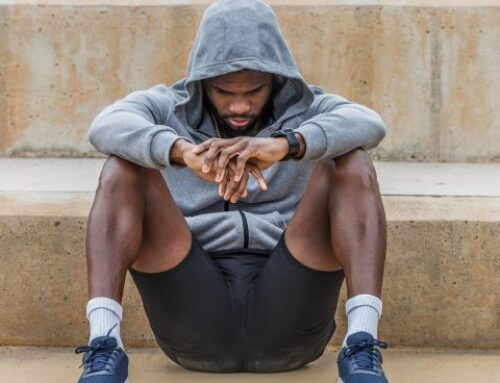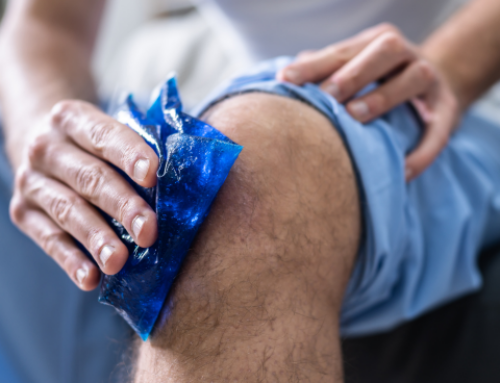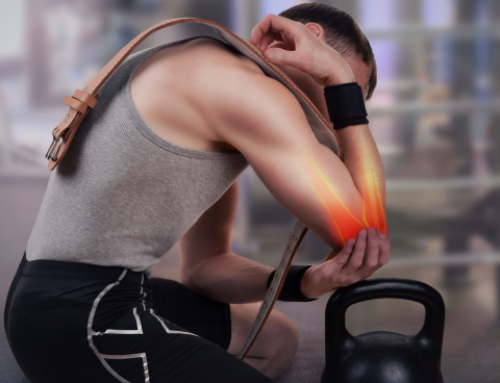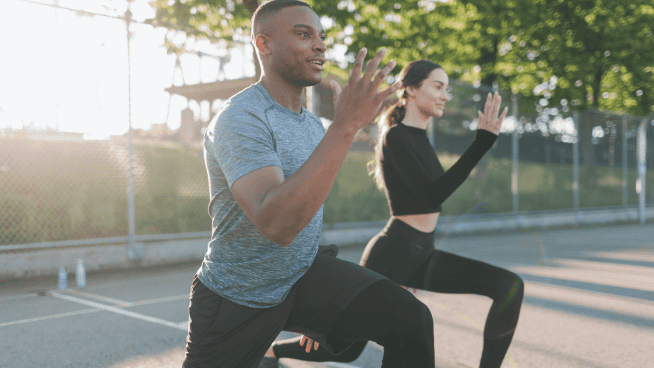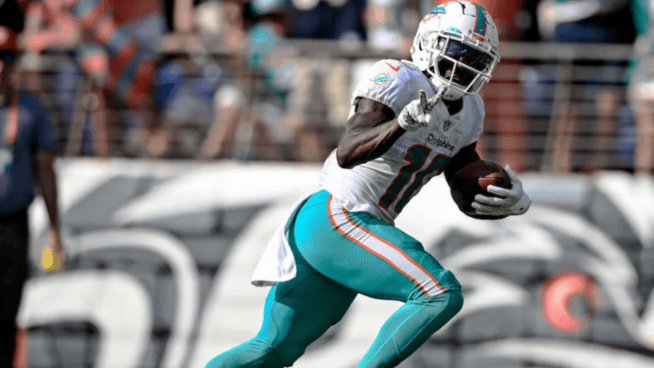The Importance of Mental Health Support After Sports Injuries
It’s Okay to Ask for Help
The moment I tore my meniscus for the third time, a pit opened up in the bottom of my stomach. By the time I was in the trainer’s room getting evaluated, I was holding back tears. It wasn’t the pain that brought on the tears. Instead, knowing the long struggle of recovery lay ahead and wondering if I could make it through once again finally released the floodgates.
Injury is a part of sports. In fact, 90% of student-athletes are reported to incur sports-related injuries. Being injured is a common occurrence that most athletes know the various protocols for recovery, including rest, ice, compression, elevation (RICE), and know-how to manage painful symptoms.
But how many athletes and their support systems, including parents, coaches, and trainers, know what to look for in mental recovery?
When young athletes sustain serious, season-ending, or long-term injuries, the road to recovery involves both the physical and mental side of the athlete. Yet only one aspect of the recovery generally gets any attention. This is something that needs to change.
My Injury
I had major surgery every year for the first three years of college—heart surgery freshman year, and then back-to-back knee surgeries sophomore and junior year. Through my years of high school, I’d suffered plenty of sprained ankles, jammed fingers, and a few concussions. But I had never been sidelined for a majority of the season.
When I tore my meniscus in my sophomore year of college and required surgery to fix it, I thought the recovery process would be similar to getting back from an ankle sprain. I had no idea the impact a serious injury could have on my life.
When the surgeons released me to go home from the hospital, they left detailed care instructions revolving around pain management; stitches care, crutches, return to walking, and more. Yet, no one warned me that I could also experience a loss of identity, anger, anxiety, or depression. So when mental health issues started to crop up, I had no idea what to do or who to turn to.
What to Expect
When athletes suffer a serious, side-lining injury, the recovery process is often long and takes much work. There is not only the physical rehabilitation that must occur but also many external pressures building on the athlete.
Without being on the court, athletes may feel distant from the team or let the team down by not playing. There may be pressure to return as quickly as possible, either from the coaches or other players. The fear of re-injury or not performing to the same level as before may linger over the athlete. And many athletes experience a disruption of identity that occurs when they are no longer actively playing a sport that is a core component of who they are.
On top of all this, student-athletes also have to manage their class load, appear at practices, stay on top of rehabilitation exercises and keep doctor appointments. The pressure and time crunch can add up fast.
Part of the Problem
Being an athlete means being mentally tough. Pushing through. Grinding. The culture of athletics is centered around strength, toughness, and grit. Half of the student-athletes have reported playing while injured, and those are just the injuries we can see.
There is a stark difference between student-athletes and the rest of the student body when it comes to mental health issues. Almost 33% of college students experience significant symptoms of mental health conditions, and of those, 30% seek help. However, when it comes to student-athletes, the number who seek help drops to 10%. This means a lot of athletes are suffering in silence.
My Struggle
I knew I needed to help my sophomore year of college after my first knee surgery. Every day was a struggle. I was pushing through pain to play for my team. I was ashamed of my body for being out of shape. It seemed like my knee would never truly recover, and I couldn’t imagine who I would be if I weren’t a basketball player. It was to the point where life didn’t seem worth it.
And yet, I didn’t tell anyone.
I fell into the trap of not wanting to look weak. I thought that other people had it worse than I did. At least I was playing again; other teammates were out for the season. I saw my struggle as my own failure to be mentally tough, a quality I prided myself on.
It took two more years, another knee surgery, and a third time tearing my meniscus before I was finally able to reach out and ask for help. I wish that I would have had the strength to reach out sooner. Or that someone close to me would have noticed and offered to help.
What to Look Out For
Whether you are a player, teammate, coach, or parent, there are things you can keep an eye out for as you or your athlete are recovering from an injury. It is important to be aware that recovery is not only a physical process and that, like with the physical side, but it is also okay to encounter setbacks.
Keep an eye out for:
- lack of motivation
- disengagement
- alterations in appetite
- mood swings
- sadness
- excessive anger
- lack of confidence
- dwelling on minor setbacks
- increased anxiety
The changes are not always easy to spot. Differences in behavior may be very subtle and hard to differentiate from struggling with time management or the pressure of school and sports. As already mentioned, the culture around athletics involves being tough and not showing any weakness. Athletes may try to mask that they are struggling.
How to Heal
First off, as an athlete, know that it is okay to ask for help. It does not make you weak; in fact, it makes you incredibly strong. Recovering from an injury is a grueling process, but having a support system makes it easier.
If you are a coach or parent, sometimes it can be helpful to “give permission” to your athlete to ask for help before anything seems wrong. Let athletes know that it is okay to reach out and provide some resources they can turn to. Resources can include talking to a trusted adult, talking to a therapist or counselor, or talking with a doctor.
My Recovery
When I tore my meniscus for the third time, it was a career-ending injury. I went from being a starting athlete averaging a double-double on the season to my career-ending in getting carried off the court. The transition was brutal. I found myself in a very dark place with no way out.
While physical therapy began right away, the mental side of my recovery only began weeks later when I started seeing my college’s free therapist. I signed up without telling anyone, ashamed that this was a treatment I needed. After a few sessions, I began to open up to close friends and family that I was struggling with and needed support.
For me, recovery was a long haul. My knee was healed well before my mind. On the other side of it now, I look back and wish someone, trainer, coach, or teammate had said, “Look, this is gonna be hard. I experienced this when I was injured. And it’s okay to admit you are struggling and ask for help. It will get better.”
So now I say this to you. If you have just suffered an injury in your sport, recovery is going to be difficult. There will be setbacks. It is okay to ask for help if you are struggling. It will get better.
Resources:
- The Counseling Center at your School
- Real Pod | A podcast by Victoria Garrick, D1 volleyball player and mental health advocate
- The USA Recognize to Recover | Resources on different mental health struggles
- The Injured Athletes Club | Join on Facebook, Instagram or listen to a podcast to share stories of other injured athletes
RECOMMENDED FOR YOU
MOST POPULAR
The Importance of Mental Health Support After Sports Injuries
It’s Okay to Ask for Help
The moment I tore my meniscus for the third time, a pit opened up in the bottom of my stomach. By the time I was in the trainer’s room getting evaluated, I was holding back tears. It wasn’t the pain that brought on the tears. Instead, knowing the long struggle of recovery lay ahead and wondering if I could make it through once again finally released the floodgates.
Injury is a part of sports. In fact, 90% of student-athletes are reported to incur sports-related injuries. Being injured is a common occurrence that most athletes know the various protocols for recovery, including rest, ice, compression, elevation (RICE), and know-how to manage painful symptoms.
But how many athletes and their support systems, including parents, coaches, and trainers, know what to look for in mental recovery?
When young athletes sustain serious, season-ending, or long-term injuries, the road to recovery involves both the physical and mental side of the athlete. Yet only one aspect of the recovery generally gets any attention. This is something that needs to change.
My Injury
I had major surgery every year for the first three years of college—heart surgery freshman year, and then back-to-back knee surgeries sophomore and junior year. Through my years of high school, I’d suffered plenty of sprained ankles, jammed fingers, and a few concussions. But I had never been sidelined for a majority of the season.
When I tore my meniscus in my sophomore year of college and required surgery to fix it, I thought the recovery process would be similar to getting back from an ankle sprain. I had no idea the impact a serious injury could have on my life.
When the surgeons released me to go home from the hospital, they left detailed care instructions revolving around pain management; stitches care, crutches, return to walking, and more. Yet, no one warned me that I could also experience a loss of identity, anger, anxiety, or depression. So when mental health issues started to crop up, I had no idea what to do or who to turn to.
What to Expect
When athletes suffer a serious, side-lining injury, the recovery process is often long and takes much work. There is not only the physical rehabilitation that must occur but also many external pressures building on the athlete.
Without being on the court, athletes may feel distant from the team or let the team down by not playing. There may be pressure to return as quickly as possible, either from the coaches or other players. The fear of re-injury or not performing to the same level as before may linger over the athlete. And many athletes experience a disruption of identity that occurs when they are no longer actively playing a sport that is a core component of who they are.
On top of all this, student-athletes also have to manage their class load, appear at practices, stay on top of rehabilitation exercises and keep doctor appointments. The pressure and time crunch can add up fast.
Part of the Problem
Being an athlete means being mentally tough. Pushing through. Grinding. The culture of athletics is centered around strength, toughness, and grit. Half of the student-athletes have reported playing while injured, and those are just the injuries we can see.
There is a stark difference between student-athletes and the rest of the student body when it comes to mental health issues. Almost 33% of college students experience significant symptoms of mental health conditions, and of those, 30% seek help. However, when it comes to student-athletes, the number who seek help drops to 10%. This means a lot of athletes are suffering in silence.
My Struggle
I knew I needed to help my sophomore year of college after my first knee surgery. Every day was a struggle. I was pushing through pain to play for my team. I was ashamed of my body for being out of shape. It seemed like my knee would never truly recover, and I couldn’t imagine who I would be if I weren’t a basketball player. It was to the point where life didn’t seem worth it.
And yet, I didn’t tell anyone.
I fell into the trap of not wanting to look weak. I thought that other people had it worse than I did. At least I was playing again; other teammates were out for the season. I saw my struggle as my own failure to be mentally tough, a quality I prided myself on.
It took two more years, another knee surgery, and a third time tearing my meniscus before I was finally able to reach out and ask for help. I wish that I would have had the strength to reach out sooner. Or that someone close to me would have noticed and offered to help.
What to Look Out For
Whether you are a player, teammate, coach, or parent, there are things you can keep an eye out for as you or your athlete are recovering from an injury. It is important to be aware that recovery is not only a physical process and that, like with the physical side, but it is also okay to encounter setbacks.
Keep an eye out for:
- lack of motivation
- disengagement
- alterations in appetite
- mood swings
- sadness
- excessive anger
- lack of confidence
- dwelling on minor setbacks
- increased anxiety
The changes are not always easy to spot. Differences in behavior may be very subtle and hard to differentiate from struggling with time management or the pressure of school and sports. As already mentioned, the culture around athletics involves being tough and not showing any weakness. Athletes may try to mask that they are struggling.
How to Heal
First off, as an athlete, know that it is okay to ask for help. It does not make you weak; in fact, it makes you incredibly strong. Recovering from an injury is a grueling process, but having a support system makes it easier.
If you are a coach or parent, sometimes it can be helpful to “give permission” to your athlete to ask for help before anything seems wrong. Let athletes know that it is okay to reach out and provide some resources they can turn to. Resources can include talking to a trusted adult, talking to a therapist or counselor, or talking with a doctor.
My Recovery
When I tore my meniscus for the third time, it was a career-ending injury. I went from being a starting athlete averaging a double-double on the season to my career-ending in getting carried off the court. The transition was brutal. I found myself in a very dark place with no way out.
While physical therapy began right away, the mental side of my recovery only began weeks later when I started seeing my college’s free therapist. I signed up without telling anyone, ashamed that this was a treatment I needed. After a few sessions, I began to open up to close friends and family that I was struggling with and needed support.
For me, recovery was a long haul. My knee was healed well before my mind. On the other side of it now, I look back and wish someone, trainer, coach, or teammate had said, “Look, this is gonna be hard. I experienced this when I was injured. And it’s okay to admit you are struggling and ask for help. It will get better.”
So now I say this to you. If you have just suffered an injury in your sport, recovery is going to be difficult. There will be setbacks. It is okay to ask for help if you are struggling. It will get better.
Resources:
- The Counseling Center at your School
- Real Pod | A podcast by Victoria Garrick, D1 volleyball player and mental health advocate
- The USA Recognize to Recover | Resources on different mental health struggles
- The Injured Athletes Club | Join on Facebook, Instagram or listen to a podcast to share stories of other injured athletes

